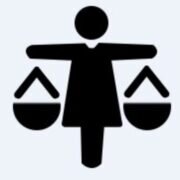Best Patent Lawyers in Dehradun
Share your needs with us, get contacted by law firms.
Free. Takes 2 min.
List of the best lawyers in Dehradun, India
About Patent Law in Dehradun, India
Patent law in Dehradun, as in the rest of India, is governed by the Patents Act of 1970, which was updated to include the Patents (Amendment) Act of 2005, aligning with the international TRIPS Agreement. This legal framework protects innovations by granting exclusive rights to inventors, ensuring they can commercially exploit their inventions while preventing others from doing so without permission. Dehradun, being a city rich in education and technological research, is home to many innovators who seek patent protection for their inventions to maintain competitive advantage and secure investments.
Why You May Need a Lawyer
There are several instances where legal assistance in patent matters may be necessary. Typically, a patent lawyer can help you with:
- Patent Search and Filing: Conducting a thorough prior art search to ensure your invention is unique and patentable, followed by drafting and filing the patent application.
- Patent Infringement: Defending against claims that your product infringes another's patent or taking legal action if someone is using your patented invention without permission.
- Patent Licensing: Drafting agreements to license your patent to others, providing a revenue stream while preserving ownership rights.
- Patent Portfolio Management: Assisting businesses in managing multiple patents to maximize their value.
- Litigation: Representing clients in patent disputes before intellectual property tribunals or courts.
Local Laws Overview
While Indian patent law is national, understanding regional nuances in places like Dehradun can be vital. Key aspects include:
- Patentable Subject Matter: In India, inventions that are novel, involve an inventive step, and are capable of industrial application can be patented.
- Exclusions: Discoveries, abstract theories, traditional knowledge, and mathematical methods cannot be patented.
- Duration: Patents in India are granted for 20 years from the filing date, subject to annual renewal fees.
- Patent Office Procedures: The Indian Patent Office has a 'First-to-File' system, making it crucial to file promptly.
- Penalties: Unauthorized use of a patented invention could lead to injunctions, damages, and potential legal action.
Frequently Asked Questions
What is the process for obtaining a patent in India?
The process involves conducting a patentability search, filing an application with the Indian Patent Office, publication of the application, and examination. If the application meets all requirements, the patent is granted.
How long does it take to get a patent in India?
It typically takes 3 to 5 years to obtain a patent from the filing date, depending on the complexity of the invention and the backlog at the patent office.
Can software be patented in India?
Indian law does not allow patents for software per se, but patents are possible for software in combination with hardware or if it results in a technical improvement.
What are the fees for patent filing and maintenance?
Fees vary based on the type of applicant (individual or entity) and the complexity of the patent. There are separate fees for filing, examination, and renewal.
Is it necessary to hire a patent lawyer?
While not mandatory, hiring a patent lawyer is advisable for ensuring the application meets all technical and legal requirements, which can improve the chances of a successful grant.
What is a provisional patent application?
A provisional application establishes an early filing date but does not mature into a patent unless a complete application is filed within 12 months.
Can a patent be challenged post-grant?
Yes, patents can be challenged during the opposition period (12 months post-grant) and can also be revoked by courts under certain conditions.
Does an Indian patent provide international protection?
No, patents must be filed in each country where protection is sought. However, the Patent Cooperation Treaty (PCT) allows simultaneous international filing in multiple countries.
What constitutes patent infringement?
Using, selling, or making a patented invention without permission constitutes infringement and can lead to legal penalties.
How can I commercialize my patent?
Commercialization options include manufacturing and selling the product, licensing it to others, or selling the patent outright.
Additional Resources
Consider reaching out to the following resources for guidance and assistance:
- Intellectual Property India: The official Indian Patent Office website provides comprehensive resources on patent filing procedures.
- WIPO (World Intellectual Property Organization): Offers valuable information on international patent protection.
- The Technology Information Forecasting and Assessment Council (TIFAC): Offers support and resources for inventors and startups in India.
- Local Incubation Centers and Universities: Institutions like IIT Roorkee might provide guidance or partnerships for patenting innovations.
Next Steps
If you need legal assistance with patenting in Dehradun, consider following these steps:
- Consult a Patent Lawyer: Engage with a local patent attorney who understands both Indian and international patent laws.
- Prepare Invention Disclosure: Clearly describe your invention and its applications to the lawyer to facilitate proper filing.
- Conduct a Prior Art Search: Work with your lawyer to ensure your invention is novel and patentable.
- Choose the Type of Patent: Depending on the stage of your invention, file a provisional or complete patent application.
- File the Application: Collaborate with your lawyer throughout the filing and examination process.
Following these steps with the help of professional guidance will maximize your chances of successfully obtaining and leveraging a patent in Dehradun, India.
Lawzana helps you find the best lawyers and law firms in Dehradun through a curated and pre-screened list of qualified legal professionals. Our platform offers rankings and detailed profiles of attorneys and law firms, allowing you to compare based on practice areas, including Patent, experience, and client feedback.
Each profile includes a description of the firm's areas of practice, client reviews, team members and partners, year of establishment, spoken languages, office locations, contact information, social media presence, and any published articles or resources. Most firms on our platform speak English and are experienced in both local and international legal matters.
Get a quote from top-rated law firms in Dehradun, India — quickly, securely, and without unnecessary hassle.
Disclaimer:
The information provided on this page is for general informational purposes only and does not constitute legal advice. While we strive to ensure the accuracy and relevance of the content, legal information may change over time, and interpretations of the law can vary. You should always consult with a qualified legal professional for advice specific to your situation.
We disclaim all liability for actions taken or not taken based on the content of this page. If you believe any information is incorrect or outdated, please contact us, and we will review and update it where appropriate.










